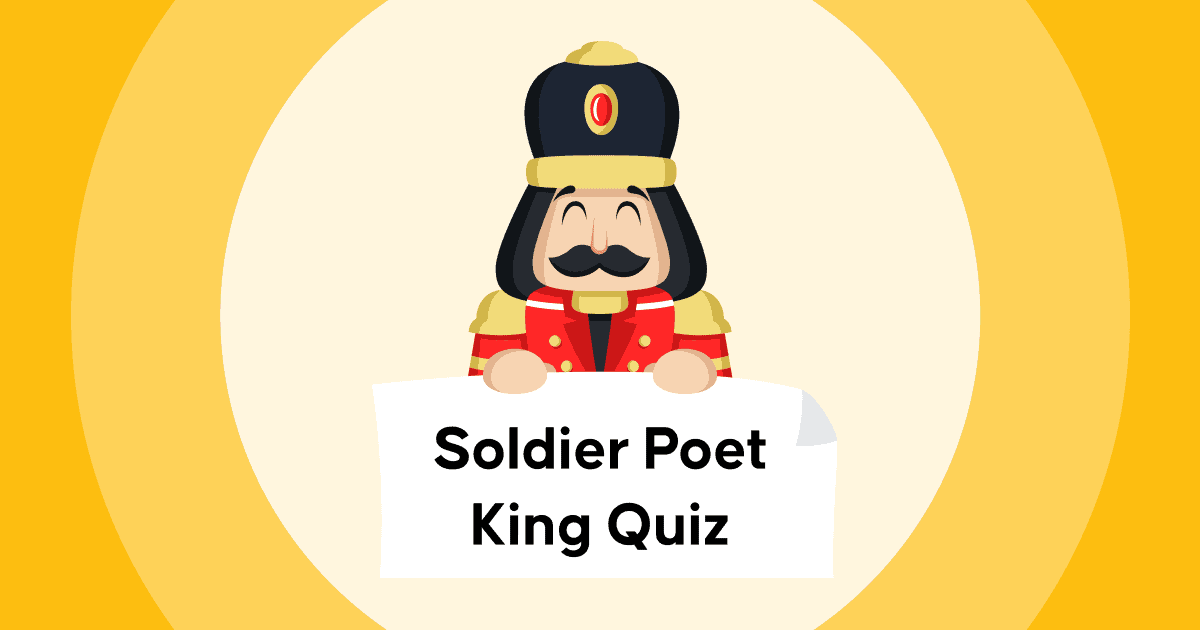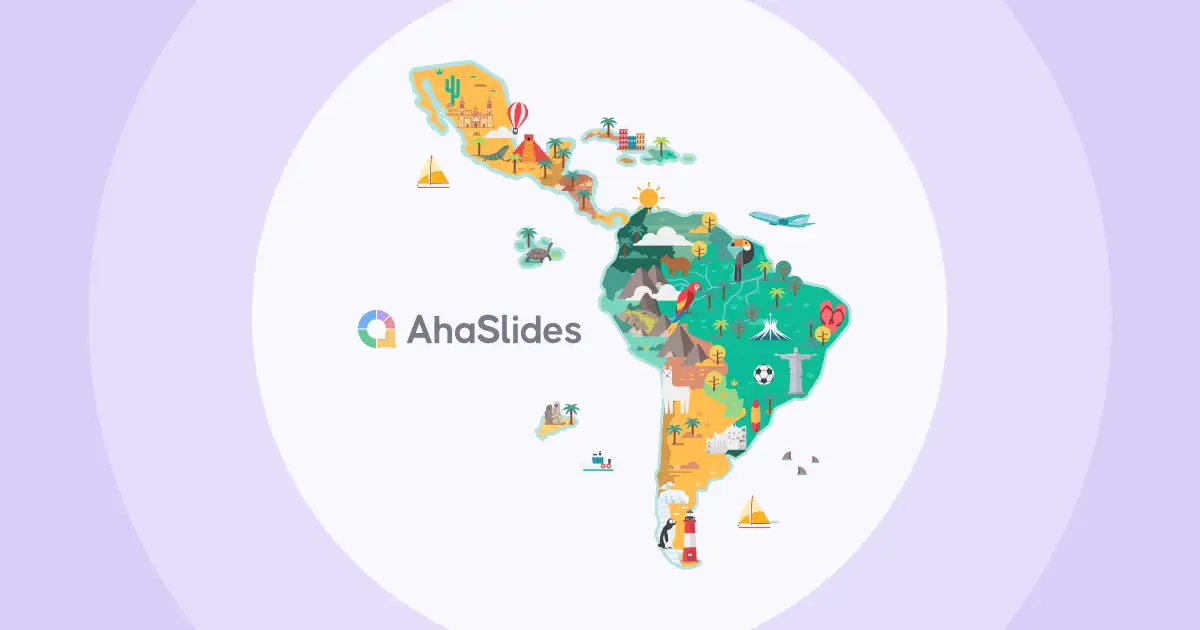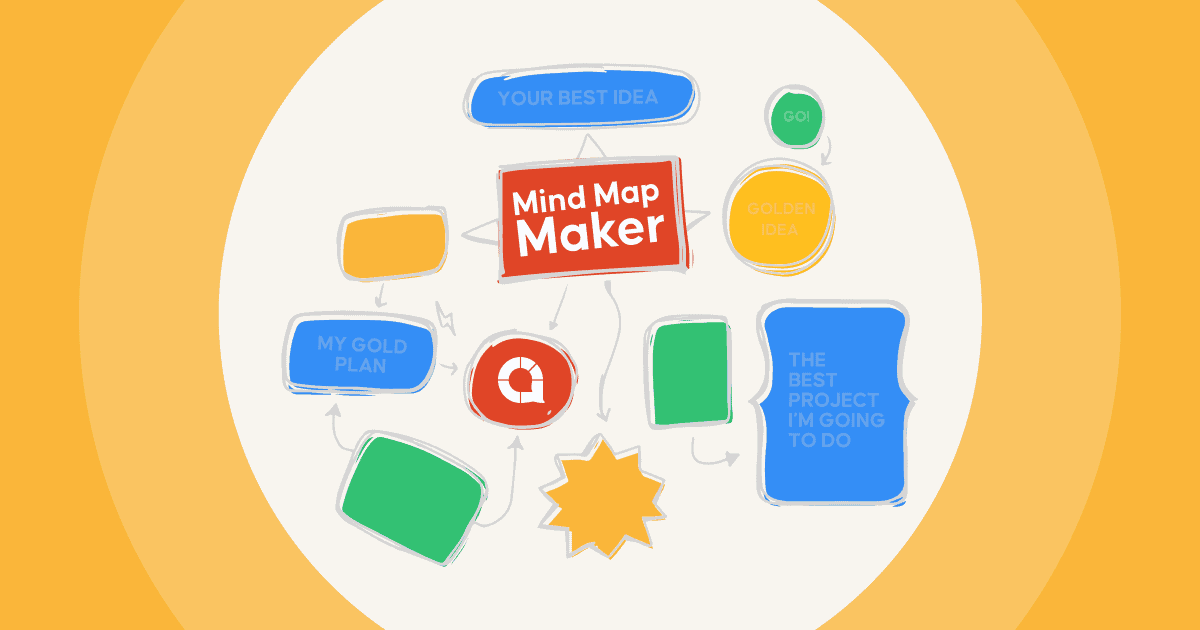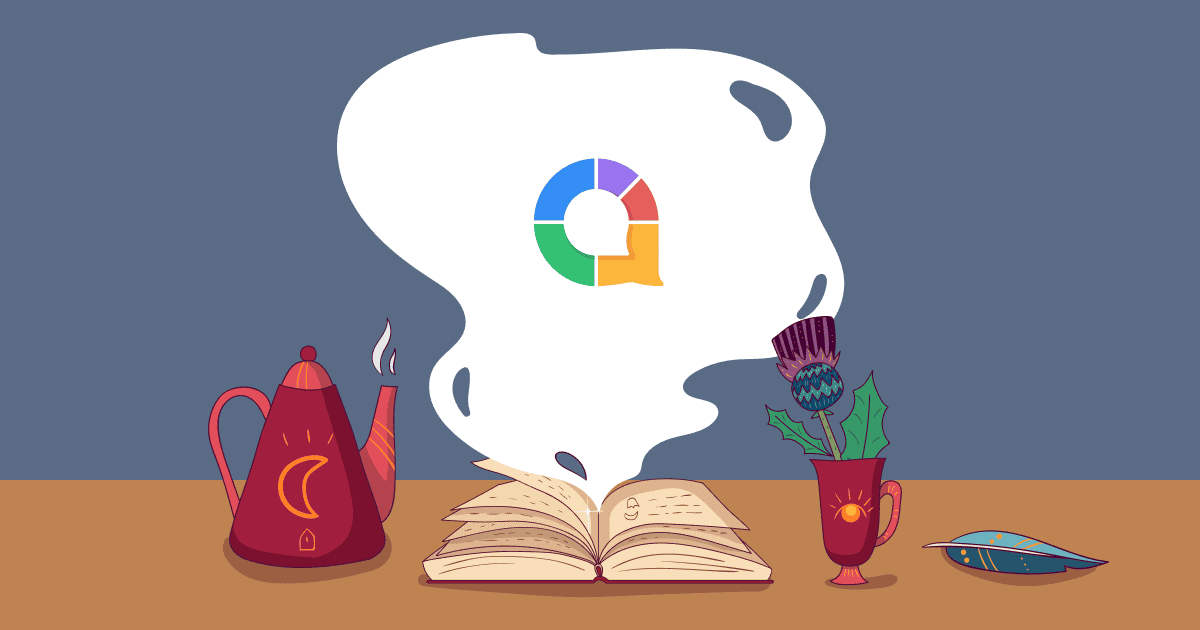Sitife Alendo Kwenikweni ndi masewera olumikizananso kuti muyambitse masewera okhudzidwa usiku kapena kusewera ndi okondedwa anu kuti mukulitsa ubale wanu, ndipo tili ndi mndandanda wathunthu woti mugwiritse ntchito UFULU pansipa!
Awa ndi masewera opangidwa bwino atatu omwe amakhudza mbali zonse za chibwenzi, maanja, kudzikonda, ubwenzi, ndi banja. Sangalalani ndi ulendo wakukulitsa maulalo anu!

TL; DR
- Masewera a "Sitiri Alendo Kwenikweni" (WNRS) si gulu la mafunso chabe; zimapanga zokumana nazo zatanthauzo pazokambirana zakuya ndi maubwenzi amphamvu.
- Ubongo wa WNRS ndi Koreen Odiney, wojambula komanso wojambula ku Los Angeles yemwe akufuna kupanga kulumikizana kowona komanso kowona.
- Mapangidwe amasewera omwe ali ndi mafunso atatu, kuphatikiza Perception, Connection, and Reflection. Pali zina zambiri zowonjezera kapena mapaketi okulitsa kuti agwirizane ndi maubwenzi enieni, monga maanja, abale, kapena abwenzi.
- Sayansi yomwe ili ndi mafunso a WNRS ikugwirizana ndi kupanga mafunso oyenera ndi mfundo zamaganizidwe monga Emotional Intelligence (EQ), nkhawa zamagulu, komanso thanzi labwino.
- Pezani mafunso aulere a mafunso a WNRS kapena makhadi owoneka bwino patsamba lovomerezeka la mtundu, ogulitsa ena kapena misika yapaintaneti.
Table ya zinthunzi
- Kodi "Sitiri Alendo Kwenikweni" ndi chiyani?
- Momwe Mungasewere "Sitiri Alendo Kwenikweni"
- Mndandanda Wathunthu wa Mafunso "Sitife Alendo Kwenikweni" (Asinthidwa 2025)
- Zosindikiza Zapadera & Paketi Zokulitsa
- Sayansi Pambuyo pa Masewera: Chifukwa chiyani WNRS Imagwira Ntchito
- Kukonza "Sitiri Alendo Kwenikweni" Pazosowa Zanu
Kodi "Sitiri Alendo Kwenikweni" ndi chiyani?
M'dziko lamakambirano opepuka osiyanasiyana, masewera a We're Not Really Strangers amadziwika ngati ulendo wolumikizana mwakuya. Sichimasinthanso momwe timasewerera masewera, koma chimatanthauziranso bwino momwe timalumikizirana ndi ena komanso ife eni.
Kotero, chiyambi chake ndi lingaliro lotani?
Wopanga WNRS ndi Koreen Odiney, wojambula komanso wojambula ku Los Angeles. Mawu akuti "Sindife Alendo Kwenikweni" adachokera kwa mlendo yemwe adakumana naye panthawi yake yojambula. Masewera a makadiwo adabadwa chifukwa cha chilakolako chake chophwanya zotchinga ndikuyambitsa kulumikizana kwatanthauzo.
Masewerawa ali ndi mafunso osiyanasiyana opatsa chidwi pamigawo itatu yopita patsogolo: Kuzindikira, Kulumikizana, ndi Kusinkhasinkha. Pali zolemba zina zapadera kapena zokulitsa monga maanja, mabanja, ndi maubwenzi kuti mukhale pachibwenzi.
Chifukwa chiyani WNRS ili yoposa Masewera a Khadi?
M'malo moyang'ana mpikisano, masewerawa amapanga malo abwino komanso zochitika. Ndi malingaliro osiyanasiyana sitiri alendo kwenikweni mafunso, mumalowa pang'onopang'ono kudziko lodzipeza nokha komanso kulumikizana kowona.
Chizindikirocho chimapanganso khadi lomaliza la osewera kuti azilemberana mauthenga, zomwe zimawonjezera kukhudzidwa kosatha.
Momwe Zinakhalira Zomveka Padziko Lonse
Chifukwa cha njira yapadera yolumikizirana kwenikweni, masewerawa adapeza mphamvu zama virus. Zimagwirizana kwambiri ndi omvera omwe akufunafuna zowona m'dziko la digito lomwe silimalumikizana kwenikweni.
Kuphatikiza apo, mphamvu ya Mawu-za-Pakamwa ndi zomwe zili pagulu lazachikhalidwe zimapangitsa kuti zikhale zovuta kwambiri padziko lonse lapansi. Mtunduwu umaperekanso zolemba zosiyanasiyana kapena mapaketi amutu kuti akwaniritse maubale angapo kuti mukwaniritse zokhutiritsa.
Momwe Mungasewere "Sitiri Alendo Kwenikweni"
Kodi mwakonzeka kuthyola zotchinga ndikumira mu ubale weniweni? Tiyeni tiwone njira zosavuta zosewerera "Sindife Alendo Kwenikweni"!
1. Kukhazikitsa Masewera ndi Zida Zofunikira
Mufunika zida pansipa kuti mupange masewerawa:
- "Sitiri Alendo Kwenikweni" makadi okhala ndi magawo atatu a mafunso. Mutha kugwiritsa ntchito mapaketi okulitsa kuti agwirizane ndi omwe mukufuna.
- Pensulo ndi notepad ya ntchito yomaliza yosinkhasinkha kapena kulemberana mauthenga.
- Malo abwino ndi opanda phokoso kuti anthu onse azimasuka kugawana malingaliro awo
Mutatha kukhala ndi zida zomwe muyenera kukhala nazo, phatikizani makhadi onse ndikuyika pansi pamilu yosiyana. Osayiwala kuika khadi yomaliza pambali kuti mugwiritse ntchito kumapeto kwa masewera.
Ponena za omwe atenga nawo mbali, mutha kuyambitsa masewerawa mosavuta ndi osewera awiri. Adzayamba ndani? Sankhani poyang'anizana; munthu woyamba kuphethira akuyamba! Mutha kusewera ndi anzanu, achibale, ngakhale alendo. Chonde dziwani kuti osewera akulimbikitsidwa kugawana momasuka komanso moona mtima.
2. Kumvetsetsa Milingo & Mitundu Yamafunso
Tsopano ndi nthawi yoti mumvetsetse milingo yamasewera! Nthawi zambiri pamakhala magawo atatu a mafunso kuti akulitse masewerawa pang'onopang'ono:
- Gawo 1: Lingaliro - Yang'anani kwambiri pakuphwanya ayezi, kupanga zongoganiza, ndikuwunika zoyambira
- Gawo 2: Lumikizanani - Limbikitsani kugawana kwaumwini, malingaliro amoyo ndi momwe akumvera
- Gawo 3: Kusinkhasinkha - Limbikitsani kulingalira mozama pa zomwe wosewerayo adakumana nazo komanso ena kudzera mumasewerawa.
3. Momwe Mungapangire Masewerawa Kukhala Osangalatsa
Pitilizani kuwona maupangiri othandiza kuti mukweze zomwe mumachita pa WNRS. Bwanji osalingalira ena mwa malingaliro otsatiraŵa?
Samalani kupanga malo abwino komanso otetezeka. Mkhalidwe wopanda chiweruzo wokhala ndi makandulo, zokhwasula-khwasula, ndi nyimbo zimapangitsa osewera kukhala omasuka kutsegula.
Osathamanga! Lolani zokambirana ziziyenda mwachibadwa. Tengani nthawi yanu ndi funso lililonse ndikumvetsera mwachidwi ndi chidwi chenicheni.
Mutha kugwiritsa ntchito WildCards ndi zovuta zingapo kuti muwonjezere kukhudza kwamasewera.
4. Kusewera Pafupifupi vs. Pa-Munthu
Mukudabwa momwe mungasewere masewera a WNRS m'malo osiyanasiyana? Osadumpha gawo ili! Zowonadi, mutha kusewera panokha kapena popanda kunyengerera.
- Sewerani mwa munthu: Ma desiki owoneka bwino ndi abwino kukweza zomwe mwakumana nazo. Kuyankhulana kwachindunji kwa anthu monga kulankhulana kwa thupi ndi kuyang'ana maso kumayambitsa kukhudzidwa kwambiri. Sonkhanitsani osewera kuzungulira tebulo ndikuyamba masewerawa ngati malamulo okhazikika!
- Sewero lenileni: Sewerani WNRS pa intaneti imagwira ntchito bwino kudzera pama foni apakanema ngati Zoom kapena Facetime kwa abwenzi akutali kapena mamembala akutali. Wosewera aliyense amasinthana kugawana pakhadi iliyonse yapaintaneti.
Koma bwanji ngati mukufuna nsanja kapena mapulogalamu a WNRS kuti masewerawa akhale osangalatsa komanso osangalatsa? Tiyeni tilingalire AhaSlides - nsanja yabwino kwambiri yolumikizirana yomwe imakupatsani mwayi wopanga mafunso osangalatsa komanso ena. Nazi template ya AhaSlides ya Ife Sitiri Alendo Kwenikweni Mafunso Pa intaneti:
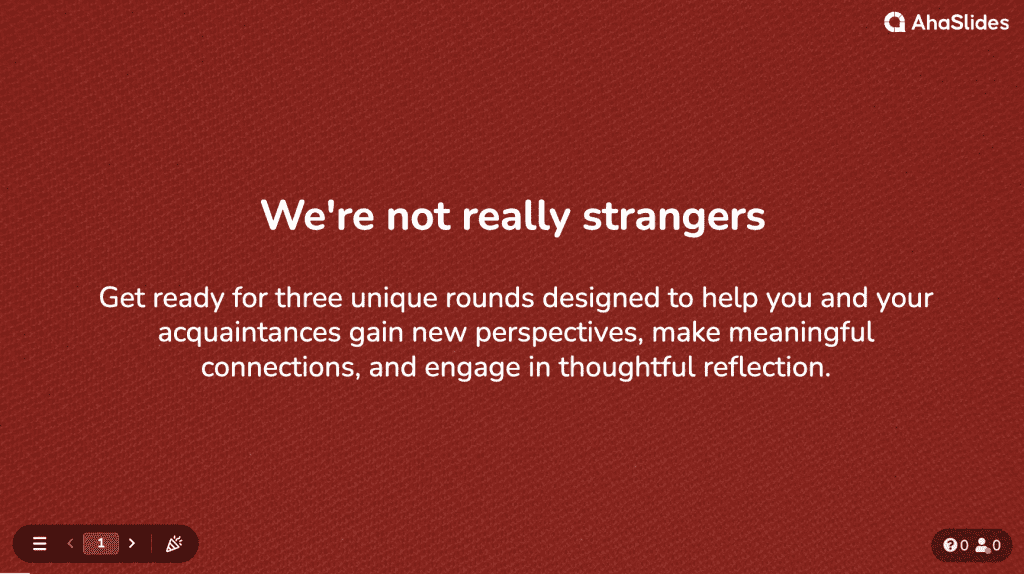
- #1: Dinani pa batani pamwambapa kuti mulowe nawo masewerawa. Mutha kuyang'ana pa slide iliyonse ndikutumiza malingaliro ake ndi anzanu.
- #2: Kuti musunge zithunzi kapena kusewera ndi anzanu mwachinsinsi, dinani 'Akaunti Yanga,' kenako lembani akaunti yaulere ya AhaSlides. Mutha kusinthanso makonda ndikusewera pa intaneti / pa intaneti ndi anthu momwe mukufunira!
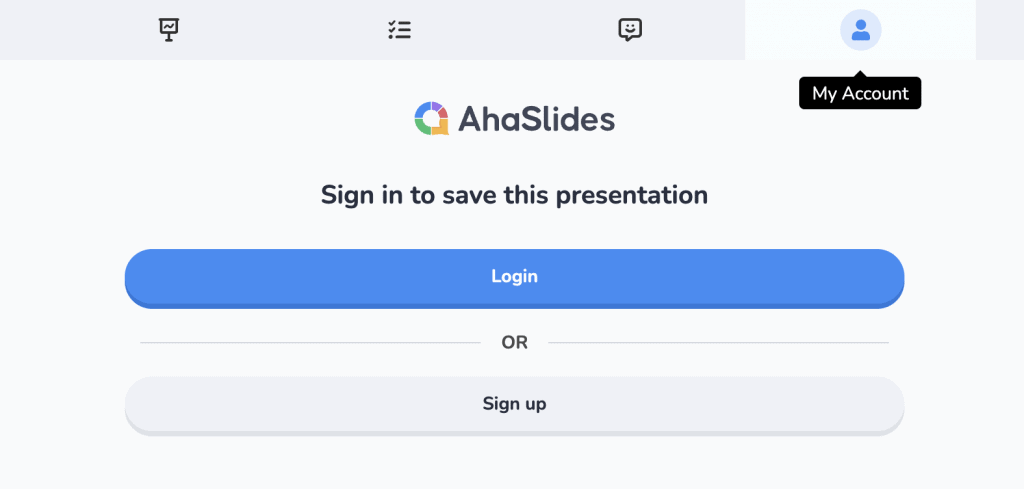
Mndandanda Wathunthu wa Mafunso "Sitife Alendo Kwenikweni" (Asinthidwa 2025)
Tiyeni tiyambe ndi zachiphamaso mpaka mwakuya Sitiri achilendo kwenikweni mafunso. Inu ndi omwe mumawadziwa mudzakhala ndi maulendo atatu osiyana omwe akugwira ntchito zosiyanasiyana: kuzindikira, kulumikizana, ndi kulingalira.
Gawo 1: Kuzindikira
Mulingo uwu umayang'ana pa kudzipenda ndikumvetsetsa malingaliro ndi malingaliro ake. Pogawana malingaliro, ophunzira amazindikira momwe ena amawaonera. Amadziwa kuweruza mwachangu komanso achifundo kwambiri pomvetsetsa magalasi ena.
Nawa ena mwa mafunso abwino kwambiri ophwanya madzi oundana omwe mungawafotokozere:
1/ Mukuganiza kuti wamkulu wanga ndi chiyani?
2/ Ukuganiza kuti ndinayamba ndakondanapo?
3/ Mukuganiza kuti ndinaswekapo mtima wanga?
4/ Ukuganiza kuti ndinachotsedwapo ntchito?
5/ Mukuganiza kuti ndinali wotchuka ku sekondale?
6/ Mukuganiza kuti ndingakonde chiyani? Cheetos otentha kapena mphete za anyezi?
7/ Kodi mukuganiza kuti ndimakonda kukhala mbatata?
8
9/ Mukuganiza kuti ndili ndi mchimwene wanga? Wamkulu kapena wamng'ono?
10/ Ukuganiza kuti ndinakulira kuti?
11/ Kodi mukuganiza kuti ndikuphika kwambiri kapena ndikungotenga?
12/ Mukuganiza kuti ndakhala ndikuwonera chiyani posachedwapa?
13/ Kodi mukuganiza kuti ndimadana ndi kudzuka molawirira?
14/ Kodi chinthu chabwino kwambiri chomwe mungakumbukire pochitira mnzanu ndi chiyani?
15/ Ndi chikhalidwe chanji chomwe chimakupangitsani kukhala wovuta kwambiri?
16/ Ukuganiza kuti ndi ndani yemwe ndimawakonda?
17/ Kodi nthawi zambiri ndimadya liti?
18/ Kodi mukuganiza kuti ndimakonda kuvala zofiira?
19/ Mukuganiza kuti ndi mbale yanji yomwe ndimaikonda?
20/ Kodi mukuganiza kuti ndili mu moyo wachi Greek?
21/ Kodi mukudziwa kuti ntchito yanga yamaloto ndi chiyani?
22/ Kodi mukudziwa komwe tchuthi langa lamaloto lili?
23/ Ukuganiza kuti ndinali kuchitiridwa nkhanza kusukulu?
24/ Ukuganiza kuti ndine munthu wolankhula?
25/ Kodi ukuganiza kuti ndine nsomba yozizira?
26/ Mukuganiza kuti chakumwa chomwe ndimakonda kwambiri cha Starbucks ndi chiyani?
27/ Kodi mukuganiza kuti ndimakonda kuwerenga mabuku?
28/ Kodi mukuganiza kuti nthawi zambiri ndimakonda kukhala ndekha?
29/ Ndi gawo liti la nyumba lomwe mukuganiza kuti ndilomwe ndimakonda kwambiri?
30/ Kodi mukuganiza kuti ndimakonda kusewera masewera apakanema?
Gawo 2: Kulumikizana
Pamlingo uwu, osewera amafunsana mafunso opatsa kuganiza, kulimbikitsa kulumikizana mwakuya komanso chifundo.
Kusatetezeka ndikofunikira apa. Kukhulupirirana ndi kuyandikana nthawi zambiri kumabwera chifukwa chomasuka komanso kugawana moona za zomwe wakumana nazo. Kukhala pachiwopsezo kumasokoneza kukambirana komanso kumalimbitsa ubale. Ndipo apa pali mafunso omwe muyenera kufunsa pazomangira zakuya:
31/ Mukuganiza kuti ndisintha bwanji ntchito yanga?
32/ Kodi munandiona bwanji koyamba?
33/ Chomaliza munanamiza ndi chani?
34/ Mumabisa chiyani zaka zonsezi?
35/ Maganizo anu odabwitsa ndi ati?
36/ Chomaliza munawanamiza amayi anu ndi chani?
37/ Kodi cholakwika chachikulu chomwe mwapanga ndi chiyani?
38/ Kodi ululu woipitsitsa womwe mudakhala nawo ndi uti?
39/ Mukufunabe kudzitsimikizira chiyani?
40/ Kodi umunthu wanu wodziwika kwambiri ndi uti?
41/ Kodi chovuta kwambiri pa chibwenzi ndi chiyani?
42/ Ndi chani chabwino chokhudza bambo kapena mayi ako?
43/ Ndi nyimbo yanji yomwe mumaikonda kwambiri yomwe simungasiye kuiganizira m'mutu mwanu?
44/ Kodi mukudzinamiza nokha pa chilichonse?
45/ Ndi nyama yanji yomwe mukufuna kulera?
46/ Kodi mungamve bwino kuti mungavomere chiyani mumkhalidwe uno?
47/ Ndi liti pamene munamva mwayi kukhala inu?
48/ Kodi ndi chiganizo chotani chomwe chimakufotokozerani bwino m'mbuyomu komanso pano?
49
50/ Ndi gawo liti la banja lanu lomwe mukufuna kusunga kapena kusiya?
51 / Kodi mumakumbukira chiyani kuyambira ubwana wanu?
52/ Zimatenga nthawi yayitali bwanji kukhala paubwenzi ndi inu?
53/ Nchiyani chimatengera munthu kuchoka kwa bwenzi kupita kwa bwenzi lapamtima kwa iwe?
54/ Ndi funso lanji mukuyesera kuyankha mmoyo mwanu pompano?
55/ Kodi mungamuuze chiyani mwana wanu?
56/ Ndi chiyani chomwe mwachita nacho chisoni kwambiri?
57/ Kodi munalira liti?
58/ Muli bwino kuposa anthu ambiri omwe mumawadziwa?
59/ Ndindani amene umafuna kulankhula naye ukasungulumwa?
60/ Chovuta kwambiri kukhala kunja ndi chiyani?
Gawo 3: Kulingalira
Gawo lomaliza limalimbikitsa osewera kuti aganizire zomwe akumana nazo komanso zidziwitso zomwe adapeza pamasewera. Ndizokhudza kudzimvetsetsa nokha ndi ena bwino, monga momwe amamvera kapena kucheza ndi ena. Mwa kuyankhula kwina, mafunso awa amakhudza nzeru zamaganizo ponena za chifundo ndi kudzizindikira. Komanso, kusinkhasinkha kwanu kudzasiya kutsekedwa ndi kumveka bwino.
Tsopano, onani mafunso ena odziwonetsera a WNRS otsatirawa:
61/ Mukufuna kusintha chiyani mu umunthu wanu pompano?
62/ Ndindani amene mukufuna kunena kuti pepani kapena kuthokoza kwambiri?
63/ Mukandipangira playlist, ndi nyimbo 5 ziti zomwe zingakhalepo?
64/ Nanga ine ndakudabwitsani?
65 / Kodi ukuganiza kuti mphamvu yanga ndi chiyani?
66/ Kodi mukuganiza kuti tili ndi zofanana kapena zosiyana?
67/ Ukuganiza kuti angakhale mnzanga wabwino ndani?
68/ Kodi ndiyenera kuwerenga chiyani ndikangopeza nthawi?
69/ Ndi pati pamene ndili woyenerera kupereka uphungu?
70/ Munaphunzirapo chiyani za inu pamene mukusewera masewerowa?
71/ Ndi funso lanji lomwe mumaopa kuyankha?
72/ Chifukwa chiyani "matsenga" akadali ofunikira ku moyo waku koleji
73/ Ndi mphatso yanji yomwe ingakhale yabwino kwa ine?
74/ Ndi gawo lanji la wekha lomwe ukuona mwa ine?
75/ Kutengera ndi zomwe mwaphunzira za ine, mungati ndiwerenge chiyani?
76/ Kodi mungakumbukire chiyani za ine pamene sitikulumikizananso?
77/ Kuchokera pazomwe ndamva za ine, ndi filimu yanji ya Netflix yomwe mumandipangira kuti ndiwonere?
78/ Ndingakuthandizeni chani?
79/ Kodi Sigma Kappa ikupitilizabe kukhudza moyo wanu?
80/ Kodi mungalekerere munthu amene amakupwetekani)?
81/ Kodi ndiyenera kumva chiyani pompano?
82/ Kodi mungayerekeze kuchita zinazake kuchokera kumalo anu otonthoza sabata yamawa?
83/ Kodi mukuganiza kuti anthu amabwera m'moyo mwanu pazifukwa zina?
84/ Mukuganiza kuti tinakumana chifukwa chiyani?
85/ Mukuganiza kuti ndimaopa chiyani kwambiri?
86/ Ndi phunziro lanji lomwe mungatenge pa macheza anu?
87/ Mukuganiza kuti ndisiye chiyani?
88/ Vomerezani kanthu
89/ Nanga ineyo simumandimvetsa?
90/ Kodi mungandifotokoze bwanji kwa mlendo?
Zosangalatsa zowonjezera: Wildcards
Gawoli likufuna kupanga masewerawa kukhala osangalatsa komanso osangalatsa. M'malo mofunsa mafunso, ndi mtundu wa malangizo omwe osewera omwe amajambula ayenera kumaliza. Nawa 10:
91/ Jambulani chithunzi (masekondi 60)
92/ Fotokozani nkhani limodzi (1 miniti)
93/ Kulemberana uthenga wina ndi mzake ndikupeleka kwa wina ndi mzake. Tsegulani mukangochoka.
94/ Tengani selfie pamodzi
95/ Pangani funso lanu pa chilichonse. Yesetsani kuwerengera!
96/ Yang'anani m'maso kwa masekondi 30. Kodi mwazindikira chiyani?
97/ Onetsani chithunzi chanu muli mwana (mumaliseche)
98/ Imbani nyimbo yomwe mumakonda
99/ Uzani munthu winayo kuti atseke maso ndi kuti atseke (dikirani kwa masekondi 15 ndikumpsompsona)
100/ Lembani ndemanga kwa ang'ono anu. Pambuyo pa mphindi ya 1, tsegulani ndikuyerekeza.
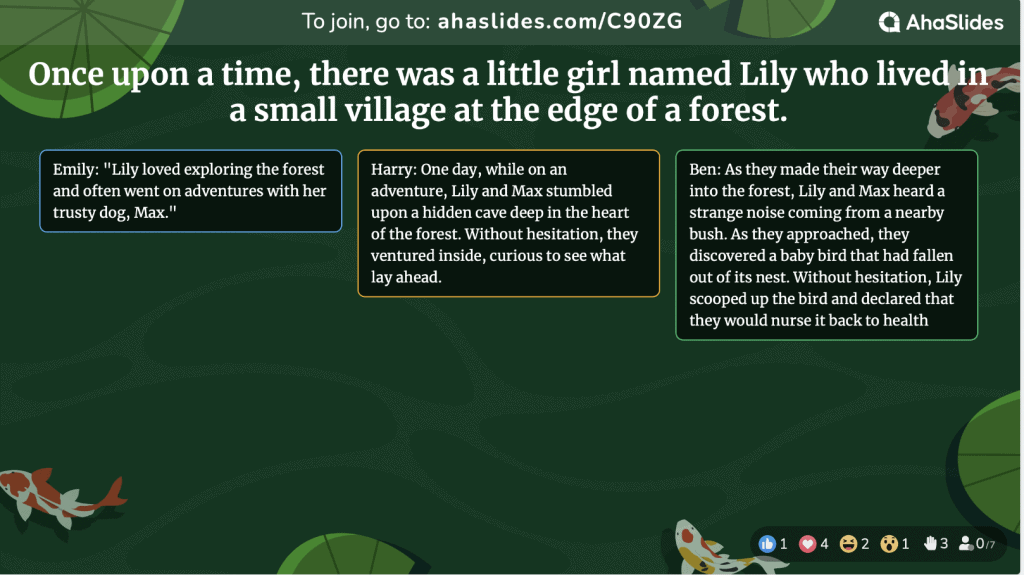
Zosindikiza Zapadera & Paketi Zokulitsa
Mukufuna zambiri Sitiri mafunso achilendo kwenikweni? Nawa mafunso owonjezera omwe mungafunse mu maubwenzi osiyanasiyana, kuyambira pachibwenzi, kudzikonda, ubwenzi, ndi banja mpaka kuntchito.
10 Mafunso Omwe Sikuti Ndife Alendo - Kope la Maanja
101/ Mukuganiza kuti chingakhale chani paukwati wanu?
102/ Nchiyani chingakupangitseni kumva kukhala pafupi ndi ine?
103/ Kodi pali nthawi yomwe mukufuna kundisiya?
104/Mukufuna ana angati?
105/ Kodi tingalenge pamodzi chiyani?
106/ Ukuganiza kuti ndikadali virgin?
107/ Ndi khalidwe liti lokongola kwambiri kwa ine lomwe siliri la thupi?
108/ Ndi nkhani yanji ya inu yomwe sindingathe kuphonya?
109/ Kodi mukuganiza kuti usiku wanga wabwino ungakhale bwanji?
110/ Ukuganiza kuti sindinakhalepo pachibwezi?
10 Mafunso Omwe Sikuti Ndife Alendo - Kope la Ubwenzi
111/ Mukuganiza kufooka kwanga ndi chiyani?
112/ Ukuganiza kuti mphamvu yanga ndi chiyani?
113/ Kodi mukuganiza kuti ndiyenera kudziwa chiyani za ine ndekha zomwe mwina ndikuzidziwa?
114/ Kodi umunthu wathu umagwirizana bwanji?
115/ Kodi mumasilira chiyani za ine?
116/ Mwa liwu limodzi, fotokozani momwe mukumvera pompano!
117/ Yankho langa lanji lakupatsirani kuunika?
118/ Kodi ndingakhulupirire kuti munganene zachinsinsi?
119/ Mukuganiza zotani pompano?
120/ Ukuganiza kuti ndine opsopsona bwino?
10 Mafunso Omwe Sikuti Ndife Achilendo - Kope la Kuntchito
121/ Ndi ntchito iti yaukadaulo yomwe mumanyadira nayo, ndipo chifukwa chiyani?
122/ Gawani nthawi yomwe mudakumana ndi vuto lalikulu kuntchito ndi momwe munalipiririra.
123/ Kodi ndi luso lanji kapena mphamvu zomwe muli nazo zomwe mukuwona kuti sizikugwiritsidwa ntchito mochepera pa udindo wanu pano?
124/ Poganizira za ntchito yanu, ndi phunziro lofunika kwambiri liti lomwe mwaphunzira mpaka pano?
125/ Fotokozani cholinga chokhudzana ndi ntchito kapena zokhumba zomwe muli nazo zamtsogolo.
126/ Gawani mlangizi kapena mnzanu yemwe wakhudza kwambiri kukula kwanu kwaukadaulo, ndipo chifukwa chiyani.
127/ Kodi mumatani kuti mukhale ndi moyo wabwino pa ntchito komanso kukhala ndi moyo wabwino pamalo ogwirira ntchito ovuta?
128/ Ndi chinthu chiti chomwe mumakhulupirira kuti anzanu kapena anzanu sakudziwa za inu?
129/ Fotokozani nthawi yomwe mudamva kuti muli ndi chidwi chogwira ntchito limodzi kapena mgwirizano pamalo anu antchito.
130/ Poganizira za ntchito yomwe muli nayo panopa, ndi mbali iti yopindulitsa kwambiri pa ntchito yanu?
10 Mafunso Omwe Sikuti Ndife Alendo - Banja
131/ Mumasangalala ndi chiyani lero?
132/ Chosangalatsa chotani chomwe mudakhala nacho?
133/ Nkhani yomvetsa chisoni ndi iti yomwe mudamvapo?
134/ Munafuna kundiuza chiyani kwanthawi yayitali?
135/ Chimakutengerani nthawi yayitali kuti mundiuze zoona?
136/ Ukuganiza kuti ndine munthu amene ungalankhule naye?
137/ Kodi mukufuna kuchita nane ndi ntchito ziti?
138/ Ndi chiyani chomwe sichinafotokozedwe chomwe chinakuchitikirani?
139/ Kodi tsiku lanu ndi liti?
140/ Mukuganiza kuti ndi nthawi iti yabwino yoti mukambirane zomwe zidakuchitikirani?
Sayansi Pambuyo pa Masewera: Chifukwa chiyani WNRS Imagwira Ntchito
Kungotsala pang'ono kufunsa, kodi kupambana kwa mafunso a We're Not Really Strangers ndi chiyani? Kudzera mwadala, mfundo zamaganizidwe, kapena zina? Tiyeni tipende pansi kuti tiwone bwino za sayansi yomwe ili kumbuyo kwamasewerawa!
Mphamvu Yofunsa Mafunso Oyenera
M'malo mongoyang'ana kupeza mayankho okha, masewera a WNRS adapanga mafunso opatsa chidwi kuti adzizindikire okha, kumvetsetsana, komanso mphindi zosintha moyo. Kuchokera ku mafunso ophwanya madzi oundana kupita ku mafunso oyambira, masewerawa amapereka malingaliro otetezeka kwa osewera kuti atsegule pang'onopang'ono ndikuchita ndi ena.
Momwe Chiwopsezo Chamalingaliro Zimamangirira Malumikizidwe Olimba
Chiwopsezo ndiye maziko a ubale wapamtima. Kulowa nawo pamasewera a WNRS kumathandizira osewera kugawana, kuphunzira ndi ena, komanso kudziphunzitsa okha. Mwanjira iyi, amawonetsa kukhulupirirana, kuwongolera kukhudzidwa, ndikukulitsa chifundo kuti apange kulumikizana kolimba.
Ubwino Wamaganizidwe Osewera Masewerawa
Kupatula kulimbikitsa maubwenzi olimba, WNRS ili ndi zabwino zambiri zamaganizidwe ndi malingaliro, monga kuwongolera Emotional Intelligence (EQ), kumasula zopinga zamagulu, kuchepetsa nkhawa, komanso kukula kwanu.
Chifukwa cha mafunso owunikira, mutha kukulitsa chidziwitso chanu komanso chifundo, zomwe ndizofunikira mu EQ. Kuphatikiza apo, zowona, malo otetezeka, ndi kulumikizana kwabwino kumasewera ngati nangula wamaganizidwe kuti achepetse kupsinjika ndi nkhawa zamagulu.
Kupatula apo, zowunikira zakutsogolo zitha kukhala nthawi yosintha moyo kuti mudzifufuze bwino kuti muzitha kumvetsetsa komanso kukula kwanu.
Holt-Lunstad J. Kulumikizana ndi anthu monga chinthu chofunikira kwambiri pa thanzi la maganizo ndi thupi: umboni, zochitika, zovuta, ndi zotsatira zamtsogolo. World Psychiatry. 2024 Oct; 23(3):312-332. doi: 10.1002/wps.21224. PMID: 39279411; PMCID: PMC11403199.
Kukonza "Sitiri Alendo Kwenikweni" Pazosowa Zanu
Umu ndi momwe mungapangire masewera a WNRS kukhala anu!
Kupanga Mafunso Anu Omwe
Musanakonzekere mafunsowo, dzifunseni kuti, "Ndimalumikizana otani omwe ndikufuna kulimbikitsa?". Kutengera maubwenzi kapena zochitika zinazake, mupanga mafunso oyenera moyenerera.
Kuphatikiza apo, tsatirani zomasulira ndi mitu yowonjezereka kuti mumve zambiri kuti mupange mafunso oyenera. Musaiwale kugwiritsa ntchito Wildcard ndi zolimbikitsa kapena mawu kuti masewerawa akhale osangalatsa komanso opindulitsa.
Masewera amtundu wina wokhala ndi malingaliro ofanana
Kondani mafunso a Ife Sitiri Achilendo kwenikweni koma kukhumba kufufuza zambiri; M'munsimu muli njira zina zabwino zomwe zili ndi malingaliro ofanana:
- TableTopics: Masewera oyambitsa zokambirana omwe ali ndi mafunso osiyanasiyana kuti azitha kusinkhasinkha mozama. Malingaliro a chakudya chamadzulo chabanja kapena maphwando ambiri.
- BigTalk: Masewerawa amadumpha mafunso pa nkhani zing'onozing'ono ndipo amatsogolera zokambirana zakuya ndi zomveka.
- Tiyeni Tifike Pakuya: Poyambirira kuti maanja azisewera ndi mafunso a 3-level: Icebreaker, Deep, and Deeper. Komabe, imatha kusinthidwa kuti ena azisewera.
Kusakaniza Ndi Zina Zoyambitsa Kukambirana
Kuti mumve zambiri komanso zochititsa chidwi, mutha kuphatikiza mafunso a We're Not Really Stranger ndi ena oyambitsa kutembenuka.
Mutha kuphatikiza zofunsira kuchokera kumasewera ena kuti musinthe mafunso osiyanasiyana. Kupanda kutero, phatikizani masewera a WNRS ndi zochitika monga kujambula, kulemba nkhani, kapena makanema usiku kuti aliyense akhale ndi mutu womwewo. Makamaka, mutha kuphatikiza pulogalamu ya We're Not Really Stranger kapena kope la digito ndi makadi akuthupi kuti mupeze zina zambiri komanso malangizo atsopano.
Zosindikizidwa & PDF za Mafunso a WNRS (Kutsitsa Kwaulere)
We're Not Really Strangers (WNRS) imapereka ma PDF otsitsa aulere amitundu yawo ya digito yokha patsamba lawo lovomerezeka. Pali zosintha zosiyanasiyana kuti zikwaniritse zosowa zanu zapadera, monga Self-Exploration Pack, Back to School Edition, Introspective Journal, ndi zina.
Tsitsani mafunso aulere a We are Not Alendo mu mtundu wa PDF Pano!
Kuti mupange makhadi anu a DIY WNRS, mutha kusindikiza ma PDF aulerewa ndikuwadula kukhala makhadi amodzi. Kapenanso, mutha kupanga mafunso owuziridwa ndi mtundu wa WNRS ndikusindikiza pa cardstock.
Mafunso Ofunsidwa Kawirikawiri
Kadi i kika kyāsonekelwe’tu kushintulula’mba Tatudi bandi bana ba bwanga?
Khadi lomaliza lamasewera amakhadi a We'' Not Really Strangers limafuna kuti mulembere bwenzi lanu ndikutsegula mukangopatukana.
Njira ina ndi iti ngati sitiri alendo kwenikweni?
Mutha kusewera masewera ena monga Sindinakhalepo, 2 Zowona ndi 1 Bodza, Kodi mungakonde, Izi kapena izo, Ndine ndani ...
Zothandizira
- Holt-Lunstad J. Kulumikizana ndi anthu monga chinthu chofunikira kwambiri pa thanzi la maganizo ndi thupi: umboni, zochitika, zovuta, ndi zotsatira zamtsogolo. World Psychiatry. 2024 Oct; 23(3):312-332. doi: 10.1002/wps.21224. PMID: 39279411; PMCID: PMC11403199. https://www.ncbi.nlm.nih.gov/books/NBK64939/
- Nkhani za IU. Malo ochezera a pa Intaneti amphamvu ndi omwe amathandizira kuthana ndi matenda amisala mwa achinyamata, kafukufuku wapeza. https://news.iu.edu/live/news/33803-stronger-social-networks-key-to-addressing-mental.

